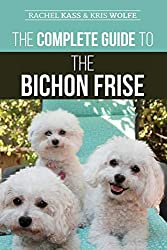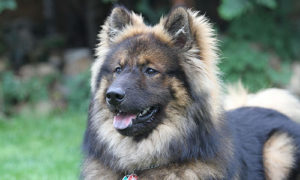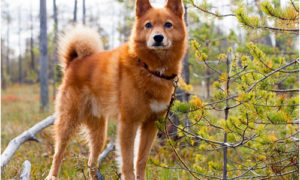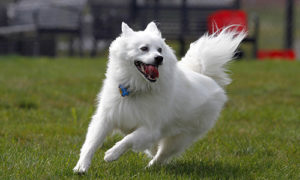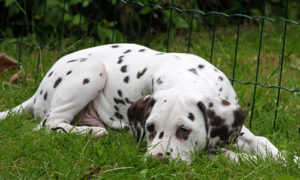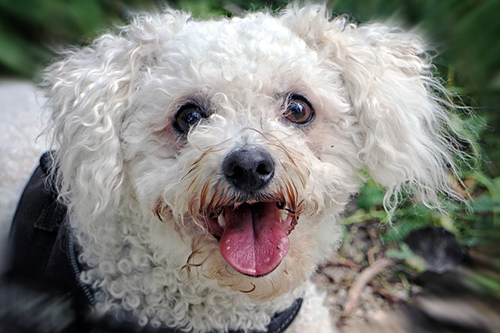
The Bichon Frise, or the Bichon Tenerife as the earlier breeders called them, originally came to us by way of the Mediterranean, where they likely shared lineage with old water spaniels. This breed first gained popularity during the 14th century as a highly coveted pet of Italian nobility and then spread to France in the 15th century, where they enjoyed similar favor.
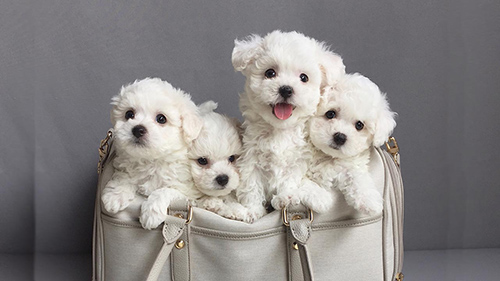
The Bichon Frise continued to be the favorite upper-class companion and performing dog well into the 19th century. Four French breeders after World War I established breeding programs to document the Bichon’s lineage, and shortly after that, breed enthusiasts recognized the little dog in 1934.
In the late 1950s, the breed eventually gained popularity in America. Even after AKC recognition in 1972, the Bichon Frise is still widely popular as pets and show dogs. Also, the Bichon differentiates itself in dog sports and therapy work.
Bichon Frise Breed Standard
The Bichon Frise is a small, energetic, and rectangular dog whose hallmark traits are a plush, white, powderpuff coat; a plumed tail that carries over the back; a jet-black nose; and sparkly eyes. The dog’s expression is soft, curious, and alert. The Bichon’s neck is long and arched; the back is level, and the chest is well developed.
Bichon Frise Temperament
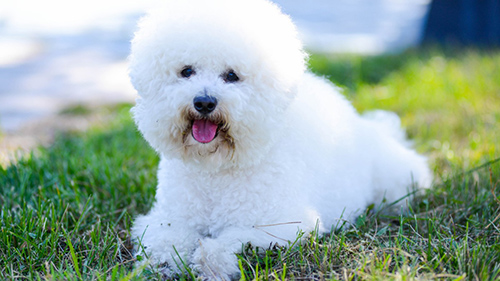
This breed is cheerful, playful, and extremely friendly; however, they must have regular socialization to develop confidence. The Bichon is a quick learner, but they’re sensitive and cannot withstand any harsh training procedures. Companionship and family are essential to these dogs, and they love to spend time with their families.
The Bichon Frise is also friendly toward other dogs, pets, and children. This dog is compassionate, responsive, and affectionate; they’re just as eager to cuddle as they are to play. Keep in mind that these dogs do not like to be left alone, and they can bark a lot. Also, patience is vital when training because they can be hard to housetrain.
Breed Facts
- POPULARITY: Popular
- FAMILY: Barbichon, Water Dog
- AREA OF ORIGIN: Mediterranean area
- DATE OF ORIGIN: Ancient times
- ORIGINAL FUNCTION: Companion, performer
- TODAY’S FUNCTION: Companion
- OTHER NAME: Bichon Tenerife, Bichon a Poil Frise
Activity level: This dog is very active, and it needs plenty of interactive indoor games, or, better, frolic in the yard or a brief walk on the leash daily.
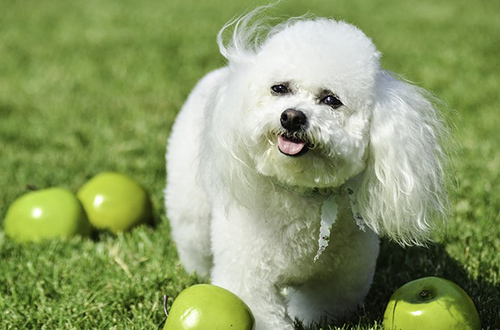
Grooming: The Bichon Frise needs daily brushing and combing. Also, try to visit a groomer at least once a month for trimming and bathing.
- Coat: The breed is famous for its plush, curly double coat, consisting of a soft undercoat and a coarser outer coat. The dog’s hair is stringy to the touch and stands away from the body, giving it a powderpuff presence.
- Color: This dog is white with a small amount of buff and cream; however, in competition, apricot shading is permitted.
Health
- MAJOR CONCERNS: patellar luxation, Cushing’s, allergies
- MINOR CONCERNS: cataract, CHD
- OCCASIONALLY SEEN: liver disease, Legg-Perthes
- SUGGESTED TESTS: hip, knee, eye, DNA for PRA
- LIFE SPAN: 12-15 years
- WEIGHT: male: 11-16 pounds; female: 10-15 pounds
- HEIGHT: 9.5-11.5 inches
Bichon Frise Breeders and Buying Advice
This dog is a very healthy breed if purchased from a reputable breeder.
- Parent club: Bichon Frise Club of America (www.bichon.org); founded in 1964
- Regional club: There are 16 local US clubs listed on the club website.
- Rescue: Bichon Frise Club of America Rescue Effort (www.bichonrescue.org)
Bichon Frise Price
You can find Bichon Frise puppies in the $1500 to $2500 range if buying from a reputable breeder. However, if you’re looking for champion show dog potential, you’re going to potentially pay $5000 or more, depending on the breeder and the dogs’ lineage. On the other hand, if you are not willing to shell out big bucks for a puppy, you can always get a rescue Bichon Frise from a shelter.

